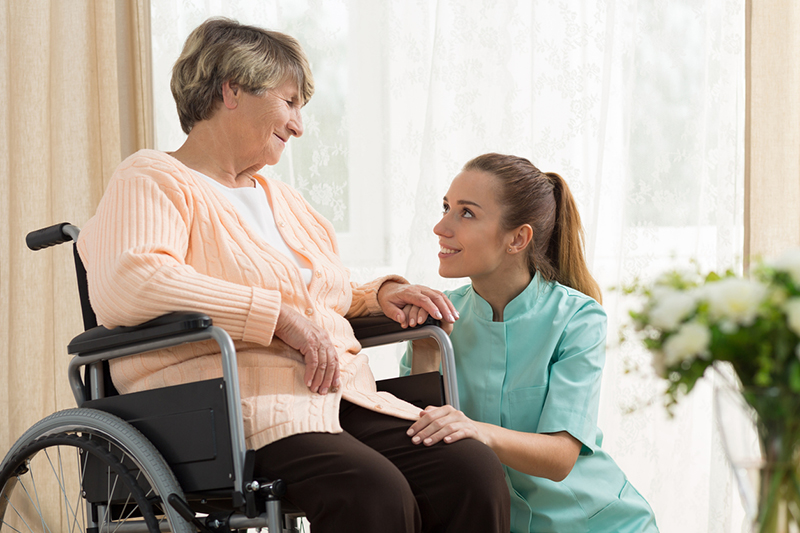Chronic obstructive pulmonary disease, or COPD, identifies two lung diseases: chronic bronchitis and emphysema. Basically, a person’s breathing is significantly affected by an airflow obstruction. Typical symptoms include an excessively wet cough, wheezing, shortness of breath, and tightness in the chest. As a result, learning to manage COPD symptoms is crucial.
By 2030, the World Bank and World Health Organization estimate that COPD will be the third leading cause of death internationally. COPD as a fiscal problem is a top cause of disability-induced unemployment.
As a family caregiver, you are on the front line of reducing this burden and helping a loved one manage COPD. While there is no cure, COPD can be treated, and your caregiving is necessary for an effective treatment program. Diet, exercise, and environmental maintenance are all areas in which you can significantly help someone you love with COPD.
Diet
A balanced diet provides those with COPD with the extra calories and energy needed to combat chest infections and to deal with their more laborious breathing. Planning and preparing meals and otherwise advising your loved one concerning which foods to include are important ways you can help.
Exhaustion often prevents people with COPD from consuming enough calories. Starting the day with a larger, more nutrient dense meal when the person you love has the most energy to eat can help. Following that with lighter meals through the day will not only help preserve calories, but also prevent the person from feeling too full, which can make it more difficult to breathe.
Although a morning coffee may once have been essential, unfortunately caffeine can react unfavorably to COPD medications and cause nervousness or restlessness, resulting in exacerbated symptoms. Additionally, help the senior steer clear of foods high in salt, as water retention caused by sodium also makes for more challenging breathing.
Exercise
Routine exercise is essential for effective COPD symptom management. In general, it enhances endurance and increases blood circulation, making for better use of oxygen. Upper body exercises improve breathing and the ability to complete daily activities. Lower body exercises such as stair climbing and track or treadmill walking have also been shown to benefit those with COPD.
Breathing exercises, including pursed lip breathing and diaphragmatic breathing, produce stronger breathing muscles, increased oxygen, and overall easier breathing. An effective plan consists of sessions of five to ten minutes, three to four times a day.
Environmental Maintenance
Finally, you should also consider environmental problems in the person’s home, particularly as related to air quality. A good place to get started is to keep the senior’s home correctly ventilated through exhaust fans, open windows, and filtration systems. That being said, windows should be kept closed during poor air quality days and dusty conditions, such as building and construction projects. Also, maintaining a balanced humidity level counters dry air from home heating systems and discourages irritating pests attracted to more humid surroundings.
Managing or avoiding very cold air, cigarette and fireplace smoke, and other air pollutants are ways you can best serve someone with COPD. It’s also helpful to reduce the use of personal care products like hair sprays, perfumes, and lotions.
Keeping the home clean can go a long way towards cutting down on irritants in the house. Eliminate and properly store dust-collecting clutter. Weekly washing of bed linens decreases dust mites, as does keeping carpets vacuumed and floors clean. At the same time, reducing exposure to harsh home cleaning products and other chemicals, including air fresheners, is critical.
Find more resources on helping a person live with and manage COPD by reaching out to us today. Our in-home caregivers can partner with you to ensure high-quality, seamless care for a loved one. Contact Compassionate Care Home Health Services any time at 877.308.1212 to learn more about in-home care in Traverse City and nearby communities.

